


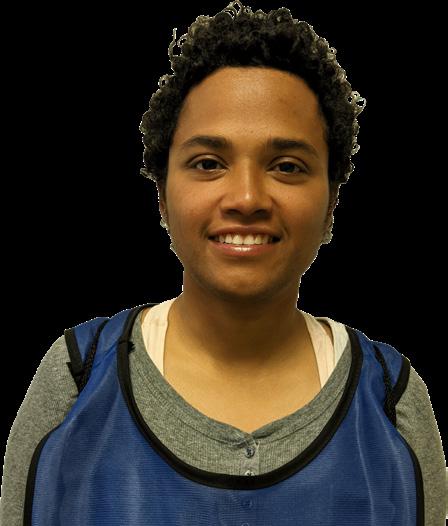
suggested donation goes directly to your vendor $2 STREETSENSEMEDIA.ORG @ STREETSENSEDC Real Stories Real People Real Change VOL. 19 I SSUE 51 N OVEMBE R 9 - 15, 2022 On the road again: Avoiding homelessness with an RV, 8-9 Co-housing: A solution to the global housing crisis? 4-5 Behind the effort to rescue pets left behind in Ukraine, 6-7 Abel Putu Carlos Carolina Amina Washington
VENDOR CODE OF CONDUCT
As self-employed contractors, our vendors follow a code of conduct.

1. I will support Street Sense Media’s mission statement and in so doing will work to support the Street Sense Media community and uphold its values of honesty, respect, support, and opportunity.
2. I will treat all others, including customers, staff, volunteers, and fellow vendors, respectfully at all times. I will refrain from threatening others, pressuring customers into making donations, or engaging in behavior that condones racism, sexism, classism, or other prejudices.
3. I understand that I am not an employee of Street Sense Media but an independent contractor.
4. While distributing the Street Sense newspaper, I will not ask for more than $2 per issue or solicit donations by any other means.
5. I will only purchase the newspaper from Street Sense Media staff and volunteers and will not distribute newspapers to other vendors.
6. “I will not distribute copies of “Street Sense” on metro trains and buses or on private property.”
7. I will abide by the Street Sense Media Vendor Territory Policy at all times and will resolve any related disputes with other vendors in a professional manner.
8. I will not sell additional goods or products while distributing “Street Sense.”

9. I will not distribute “Street Sense” under the influence of drugs or alcohol.
10. I understand that my badge and vest are property of Street Sense Media and will not deface them. I will present my badge when purchasing “Street Sense” and will always display my badge when distributing “Street Sense.”
The Street Sense Media Story, #MoreThanANewspaper
Originally founded as a street newspaper in 2003, Street Sense Media has evolved into a multimedia center using a range of creative platforms to spotlight solutions to homelessness and empower people in need. The men and women who work with us do much more than sell this paper: They use film, photography, theatre, illustration, and more to share their stories with our community.
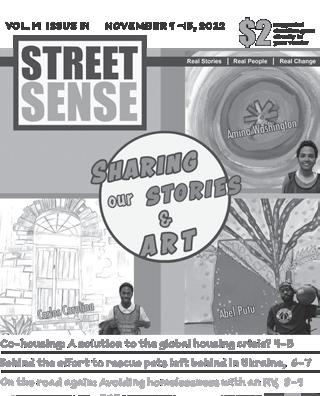
Our media channels elevate voices, our newspaper vendor and digital marketing programs provide economic independence. And our in-house case-management services move people forward along the path toward permanent supportive housing.
At Street Sense Media, we define ourselves through our work, talents, and character, not through our housing situation.
© STREET
MEDIA 2003 - 2022
1317 G Street NW, Washington, DC 20005 (202) 347 - 2006 streetsensemedia.org info@streetsensemedia.org
VENDORS
Abel Putu, Abraham Aly, Aida Peery, Amina Washington, Andre Brinson, Andrew Anderson, Angie Whitehurst, Anthony Carney, Anthony Pratt, Archie Thomas, August Mallory, Betty Everett, Beverly Sutton, Bob Davis, Brianna Butler, Brandon Archer, Candice Wilkes, Carlos Carolina, Carlton Johnson, Carol Motley, Charles Armstrong, Charles Woods, Chon Gotti, Chris Cole, Chris Sellman, Conrad Cheek, Corey Sanders, Cortney Signor, Daniel Ball, David Snyder, Debora Brantley, Degnon (Gigi) Dovonou, Don Gardner, Donté Turner, Doris Robinson, Earl Parker, Eric Glover, Eric Thompson-Bey, Erica Downing, Evelyn Nnam, Floyd Carter, Franklin Sterling, Frederic John, Fredrick Jewell, Gerald Anderson, Gracias Garcias, Henry Johnson, Ivory Wilson, Jacqueline “Jackie” Turner, Jacquelyn Portee, James Davis, Jeanette Richardson, Jeff Taylor, Jeffery McNeil, Jeffrey Carter, Jemel Fleming, Jenkins Daltton, Jennifer McLaughlin, Jermale McKnight, Jet Flegette, Jewel Lewis, John Littlejohn, Joshua Faison, Juliene Kengnie, Justin Blakey, Katrina Arninge, Kenneth Middleton, Khadijah Chapman, Kym Parker, L. Morrow, Laticia Brock, Laura Smith, Lawrence Autry, Levester Green, Malcolm Scott Jr, Marcus McCall, Mark Jones, Mango Redbook, Maurice Spears, Melody Byrd, Michael Warner, Michelle Mozee, Michele Rochon, Mildred M. Hall, Morgan Jones, Patricia Donaldson, Patty Smith, Phillip Black, Queenie Featherstone, Reggie Jones, Reginald Black, Reginald C. Denny, Ricardo Meriedy, Rita Sauls, Robert Warren, Rochelle Walker, Ron Dudley, Sasha Williams, Shawon McCrary, Sheila White, Shuhratjon Ahmadjonov, Susan Westmoreland, Susan Wilshusen, Sybil Taylor, Warren Stevens, Wendell Williams
BOARD OF DIRECTORS
Mary Coller Albert, Blake Androff, Jonquilyn Hill, Greg Jaffe, Stanley Keeve, Clare Krupin, Ashley McMaster, Matt Perra, Michael Phillips, Daniel Webber, Shari Wilson, Corrine Yu
CHIEF EXECUTIVE OFFICER
Brian Carome
DIRECTOR OF DEVELOPMENT AND COMMUNICATIONS
Doris Warrell
DIRECTOR OF PROGRAMS
Darick Brown
DIRECTOR OF VENDOR EMPLOYMENT Thomas Ratliff
VENDOR PROGRAM ASSOCIATES Aida Peery, Clifford Samuels, Amina Washington
VENDOR PROGRAM VOLUNTEERS Roberta Haber, Ann Herzog, Madeleine McCollough, Dylan Onderdonksnow, Winston Duncan, Amelia Stemple
MANAGER OF ARTISTIC WORKSHOPS Maria Lares
EDITOR-IN-CHIEF Will Schick
DEPUTY EDITOR Kaela Roeder PRODUCTION EDITOR Athiyah Azeem
STAFF REPORTER Annemarie Cuccia EDITORIAL INTERN Neal Franklin
MICHAEL STOOPS DIVERSITY FELLOW Sophia Thomas
ARTISTS-IN-RESIDENCE
Ariane Mohseni (Film), Bonnie Naradzay (Poetry), David Serota (Illustration), Lalita Clozel (Film), Willie Schatz (Writing)
ARTS EDITOR (VOLUNTEER) Austine Model
OPINION EDITORS (VOLUNTEER)
Rebecca Koenig, Emily Kopp, Bill Meincke, Candace Montague
EDITORIAL VOLUNTEERS
Josh Axelrod, Ryan Bacic, Katie Bemb, Lilah Burke, Chelsea Ciruzzo, Lenika Cruz, Alison Henry, Kathryn Owens, Nick Shedd, Andrew Siddons, Jenny-lin Smith, Rebecca Stekol
2 // STREET SENSE MEDIA // NOVEMBER 9 - 15, 2022
INTERESTED IN BEING A VENDOR? New vendor training: every Tuesday and Thursday // 2 p.m. // 1317 G St., NW NO CASH? NO PROBLEM. How It Works Each vendor functions as an independent contractor for Street Sense Media, managing their own business to earn an income and increase stability in their life.
newspaper BUSINESS MODEL YOUR SUGGESTED $2.00 DONATION goes directly to your vendor, empowering them to overcome homelessness and poverty per newspaper copy $.50 Vendors pay Pay vendors with the Street Sense Media app! S earch “S treet S en S e ” in your app S tore . AVAILABLE
Street Sense Media publishes the
The Cover Cover art from Amina Washington, Abel Putu and Carlos Carolina. Designed in Adobe Express by Will Schick
SENSE
Portugal's charities struggle to cope with homelessness surge
CATARINA DEMONY AND MIGUEL PEREIRA Reuters
Six months ago, Jose Moreno found himself without a roof over his head. Now wandering the streets of Lisbon, the 48-year-old said soaring food prices were making his life even tougher.
"For people with little money, it's becoming impossible," Moreno said after picking up a burger and pasta meal from a van run by homeless charity CASA. "All the prices went up."
Another homeless man, who requested anonymity, joined the long queue for free food saying that if it wasn't for charities he would "starve to death" as the inflation had made even bread unaffordable.

The impact of the Ukraine conflict has contributed to food price inflation, with the average cost of bread in the European Union 18% higher in August than a year ago, Eurostat data showed.
Carla Paixao, from Doctors of the World charity, said the number of homeless had "drastically" increased in Portugal since the invasion in February.
Rising living costs are exacerbating the problem. The inflation rate in Portugal, one of Western Europe's poorest countries, hit a 30-year high of 9.3% last month.
Low wages and high rents make Lisbon the world's third-least viable city to live in, based on a recent study by insurance brokers CIA Landlords. The average monthly salary is 878 euros ($852), but apartments rarely cost less than 1,000 euros to rent, the study found.
CASA director Maria Loureiro said the cost of living crisis was increasing homelessness but had also led people to reduce charitable donations to help manage their own bills.
"We have to make a greater effort to reach everyone but we don't have the capacity to respond to all," she added, explaining that requests for support had jumped by about 30% in the first half of 2022 from a year ago.
‘Time of pressure’
The same is happening in other countries. In Britain, the Charities Aid Foundation (CAF) said 4.9 million fewer people gave to charity or sponsored someone between January and April.
Also, inflation is eroding the value of those donations.
Analysis by CAF and Pro Bono Economics showed the 5.7 billion pounds ($6.31 billion) UK charities received in donations in the first six months of 2022 will be worth 8.5 per cent less by year-end due to inflation.
Charities are also struggling to cope as they face rising energy bills and shrinking food donations which means they have to seek help from food banks. "This is a time of pressure," said Isabel Jonet, head of Portugal's Food Banks.
Paixao, from Doctors of the World, which provides health support to homeless people, explained that inflation and high housing costs were driving new groups of people into homelessness, including people with jobs but who are not earning enough to keep up with their rent.
Citing the gloomy international backdrop, she said the number of homeless people would be likely to increase even further this winter. "We are quite apprehensive," she added.
Courtesy of Reuters / International Network of Street Papers
AT A GLANCE VENDOR PROGRAM ANNOUNCEMENTS
• The office will be closed Friday, Nov. 11, for Veterans Day.
• One more week to earn $10 and 10 papers by taking a vendor survey!
• The office follows the government for severe weather delays and closures. Search online for “opm.gov/status” or call the main office line.
• The Street Sense holiday party will be Friday, Dec. 16 at 1 p.m.!
• Newly designed vests are here! Every vendor gets a free one.
• Street Sense now offers nine vendor workshops, with at least one every day starting at 10:30 a.m. Come to a workshop today!
BIRTHDAYS
Andre Brinson Artist/Vendor Nov. 9 George Gray Artist/Vendor Nov.
14
STREETSENSEMEDIA.ORG // 3
NEWS IN BRIEF
People wait in line to collect food from homeless charity CASA in central Lisbon, Portugal October 11, 2022. Photo by Pedro Nunes / Reuters
Cohousing is empowering people to fight back against a global housing crisis
JOHANNES NOVY International Network of Street Papers
The debate around how to fix the global housing crisis usually hinges on whether more market or more state is required. Some people stress the need for additional housing stock and less regulatory red tape, so that the market can create it. Others claim that stricter government measures – against ruthless developers and landlords, more rent control, and more public housing – are crucial.
Increasingly, policymakers are paying attention to what lies between the public and private sectors. The United Nations’ New Urban Agenda – a key international policy framework to promote sustainable urban development – highlights the benefits of “cooperative solutions, such as cohousing, community land trusts and other forms of collective tenure.” A slew of recent community-led housing projects across Europe and beyond show how this can work.
Cohousing includes all kinds of edifices, new and existing. It is not tied to a particular type of tenure. And the groups of people it involves can vary considerably in size. At its heart are two key principles. Residents do not only live next to each other, but with each other, in buildings that comprise communal spaces and facilities. And they take the lead, or at least are involved in, the design and management of their communities.
Communal life
German sociologist Anja Szypulski has lauded the “abundant potential” cohousing proffers for sustainable housing and neighborhood development. The first way it does this is by promoting an ethos of participation and sharing.

Residents are involved throughout the building process. When, in the wake of the 2008 financial crash, a developer pulled out of a state-owned site in Cambridge, the city council opted for a cohousing initiative to build on the land instead, precisely because of the social and community benefits that would bring.
The resulting Marmalade Lane project opened in 2018 after four years, during which the cohousing members developed the architectural brief, sought planning permission and contracted builders.
Residents also often take part in actually building their homes too. The Church Grove project in Lewisham, south London, is a community-led housing development on a old derelict school and industrial site. When completed it will count 36 homes designed to be permanently affordable. To keep the costs low, future residents are involved in this construction process. They have already built a communal hall on the site.
Communality also shapes daily life in a cohousing project.
Marmalade Lane residents share 42 homes – houses and flats, both – organized around a common house with a shared kitchen, refectory and fireplace, a pedestrianised lane, outdoor play area and garden, a laundry, a gym and a workshop.
Similarly, La Borda, in Barcelona, is a cooperative housing block comprising 28 apartments, organized around a communal, open-plan atrium. Residents share a kitchen-dining area, a laundry room, guest rooms and generous outdoor spaces. Their flats were deliberately designed small, with movable walls, so that a room belonging to one flat could become part of another, as the need arose.
The La Borda project contributes to the wider community, too, by organizing events and sourcing goods from local cooperatives. It is based on a participatory planning process and costs have been kept low through the use of smart lowtech solutions and a lot of self-help during construction by its future users, who are also responsible for the maintenance and management of the project. Decisions are made collectively in a general assembly and all adults participate in various committees that deal with different issues, from financial matters to communal dinners
While the idea of committee meetings and doors facing each other won’t appeal to everyone, the benefits of knowing you’re not alone are clear. Residents at Marmalade Lane have spoken about children playing together, stay-at-home mothers not feeling isolated and retirees being engaged and occupied.
The UK Cohousing network describes cohousing as a “way of resolving the isolation many people experience today, recreating the neighborly support of the past.” And research bears this out. A recent study on the way cohousing dwellers in the UK coped with lockdown found that many residents experienced a level of mutual support and care that went well
beyond the general good neighborliness of the early days of the pandemic.
Cohousing projects also encourage sustainability by typically being built for the long term. The Marmalade Lane buildings used environmentally-friendly materials and designs that promote low-energy use for a small carbon footprint.
Critics have lauded La Borda, meanwhile, for its bold innovation – the passive cooling and heating system; the fact that it does not include a car park and thus has a significantly lower projected carbon footprint; the way the architectresidents continue to improve the building as needs emerge. The project has been awarded the 2022 Mies Van Der Rohe prize for emerging architecture, with the jury noting its radical, “transgressive” approach to shared resources and capacities. It was deemed to be effecting “political and urban change from within the system.”
Institutional support
An EU-funded report on the right to housing highlights that cohousing has been “coopted by the market”. And it is true that cohousing nowadays can be less an alternative to market housing than an upmarket niche product of it, with prices of entry often prohibitively high.
Grassroots initiatives can find it difficult get hold of suitable sites and to finance their projects, especially when their budgets
4 // STREET SENSE MEDIA // / NOVEMBER 9 - 15, 2022 NEWS
Socially and architecturally sustainable
Photo courtesy of the International Network of Street Papers
are limited. In many countries, housing, tax and lending policies create a huge bias in favor of traditional homeownership, while planning systems favour large developers.

For cohousing to thrive, then, institutional support is key, from facilitating access to public land to providing grants as well as planning support and technical advice. It also helps for projects and initiatives to team up and support each other, as an initiative in Germany shows.
Founded in Freiburg, Germany, in 1992, the Miethäusersyndikat or apartment-house syndicate, helps selforganized housing initiatives get off the ground, at scale. It is essentially a consortium of existing housing projects that acts as a nonprofit, cooperatively run investment company, helping people to buy or build homes for cooperative use.
These projects are organized as limited liability companies, with both the syndicate and the respective residents as joint owners and the individual residents paying rent to the liability company they co-own. Residents also largely manage their properties themselves.
While residents are free to decide on most matters, including designs, the modalities of living together or rent levels, they are not able to convert their houses into traditional private property or to sell them. The syndicate’s approach is, at its core, about permanently removing housing from the market.

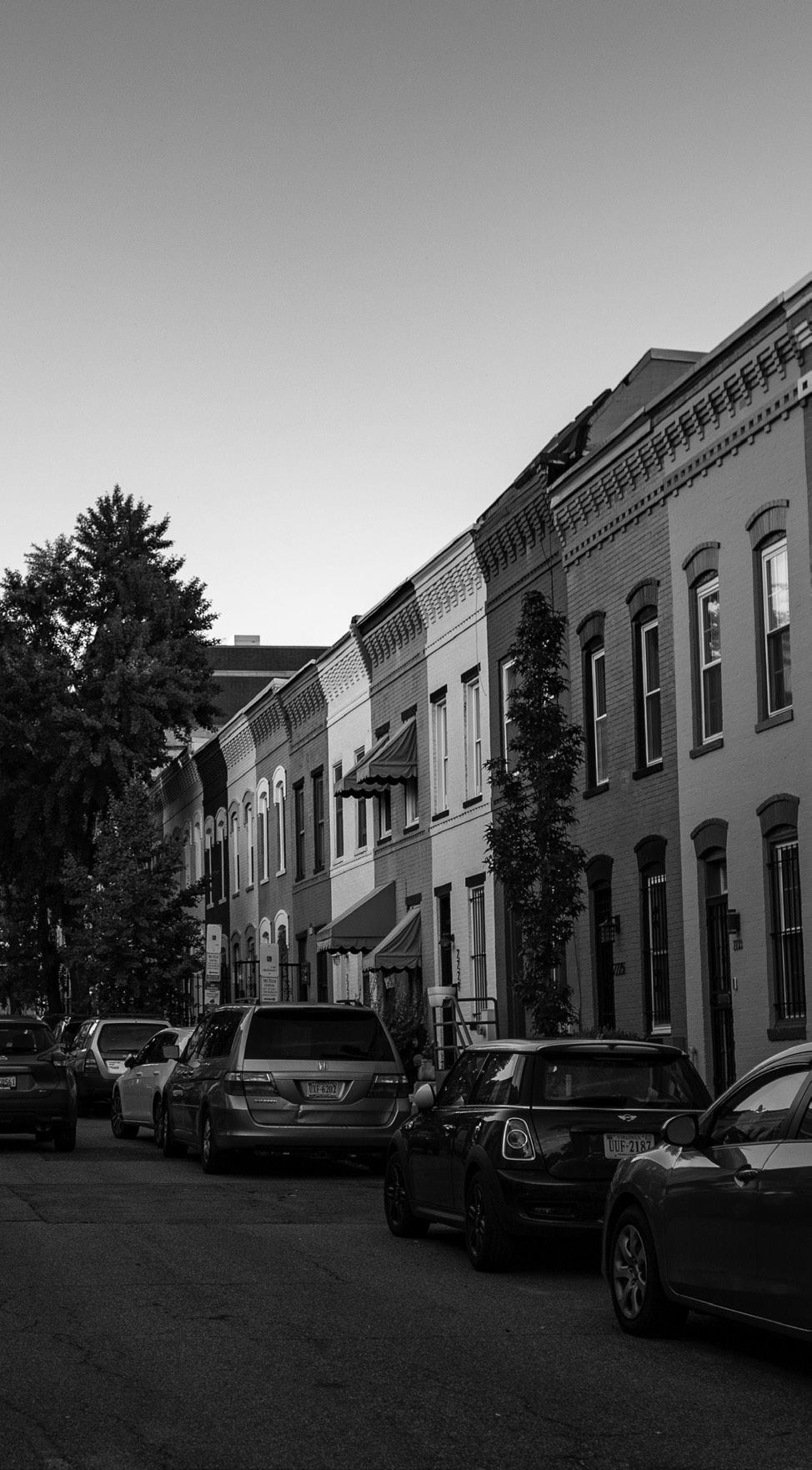
Similarly central to it is the idea of solidarity. Projects with more financial resources support those with less. All residents contribute to a syndicate-wide solidarity fund, that gradually increases over time as other burdens such as loans decrease.
This in turn makes it possible to support new projects, of which it currently has at least 177 in the works, in Germany and elsewhere.
These 177 projects are not only enabling thousands of people to escape the vagaries of the housing market. In many cases they also demonstrate the innovative potential that comes with empowering people to take control of the creation of their homes and communities.
STREETSENSEMEDIA.ORG // 5
Johannes Novy is a senior lecturer in urban planning at the School of Architecture and Cities at the University of Westminster.
Courtesy of The Conversation / International Network of Street Papers
Lisbon, Portugal city-scape. Photo by Karsten Wineggeart // Usplash Skyscrapers for office and housing mark the Tokyo skyline. Photo by Ricardo Chiiarini // Usplash
Townhouses are a feature of housing in DC. Photo by Andrea Garcia// Usplash
‘They are injured, scared and burned’
The effort to rescue animals in Ukraine
MARIANA PETŘÁKOVÁ International Network of Street Papers
Everyone who is willing to help
According to data gathered by United Nations more than 12 million people have had to leave their homes since the beginning of the war in Ukraine. Due to massive migration waves towards Europe around Ukraine, lots of animals in the cities, suburbs and villages have ended up abandoned. “Many of these animals are waiting in the ruins of homes for owners that will never come back. The explosions are blinding them, they often become deaf, and they do not understand what is happening to them,” said Yuliya, a member of the organization Pomoc zvířatům UA and of animal shelter Barbos, the biggest partner of the organization. Since the beginning of the war, the initiative has helped tens of thousands of animals and delivered more than five tons of feed to the affected areas. Obviously, animals that are often injured, burnt and cold cannot help themselves without human help, so the activities of similar programs are especially important. However, their activities are obstructed not only by the war and oncoming winter but
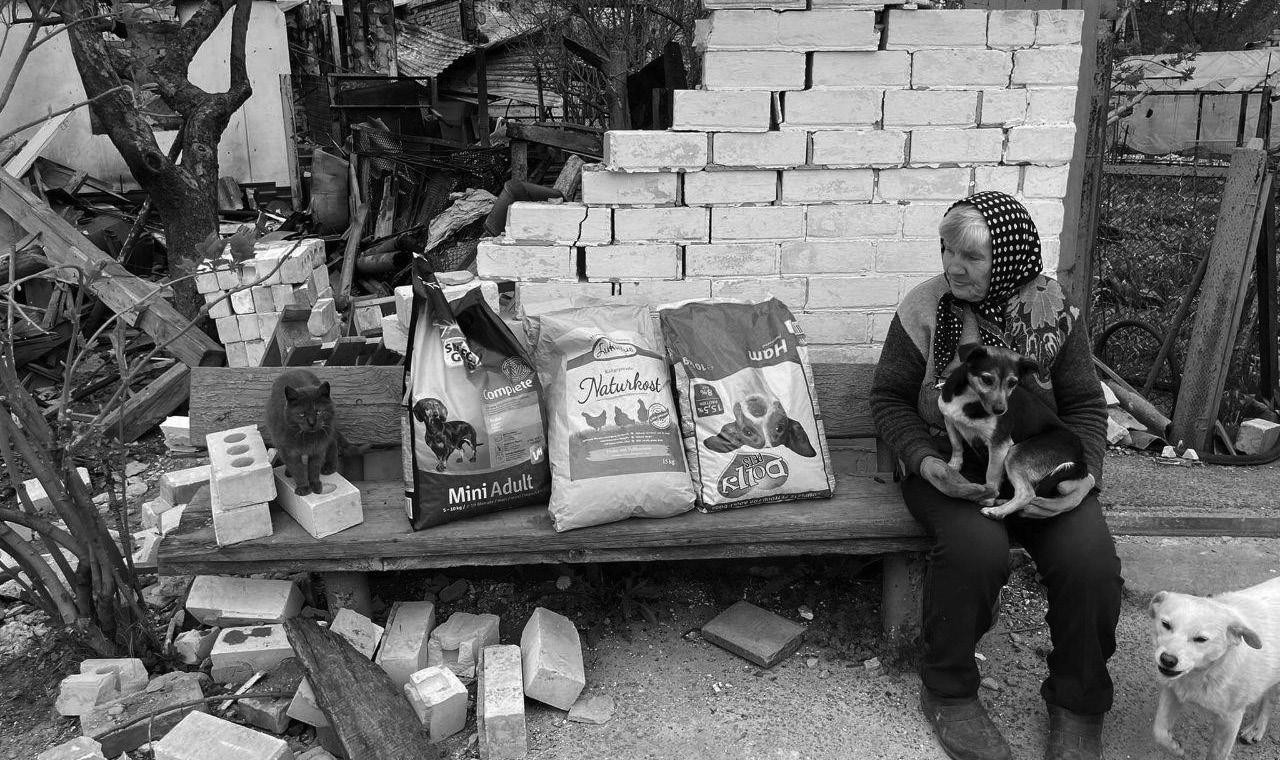
also by legislation.
The initiative was formed by several entities rescuing animals at the beginning of the Russian invasion of Ukraine. “Our team has been brought together by fate, and now we’re the most efficient team which helps to deliver feed directly to the shelters and animals in need; even in comparison to the activity of other foreign organizations,” says Yuliya who, together with the manager of the Barbos shelter, has built a network of volunteers almost in every corner of Ukraine. Yuliya and Irina also organize evacuations from the most affected areas, search for shelters which are still able to accept more animal refugees, and organize transport and veterinary aid. They communicate via social networks and carefully verify every person and entity they are sending help to. “Thanks to that, the help flows quickly, it is effective and with minimal expenses,” adds Yuliya.
They deliver aid to big and small shelters, and also to individuals who stayed in Ukraine and keep feeding animals in the streets. They also run a line for people who had to leave their homes and take their pets with them. Next to providing
the feed, they also coordinate free veterinary care that is provided by Veterinarians Without Borders. Big international and European nonprofit organizations, funds, and charities are helping the organization with transporting the feed, providing the shelters and other activities. These include Uzhhorod-based shelter Barbos, or the Greater Good Charities fund from the USA, whose representatives take part in programs to help animals survive the winter that is hard enough to survive even without the war raging. Not only individual donors but also domestic companies donate material support and food for animals. According to the organization, a lot of financial resources has been raised through the material collections at the beginning of the war, but the interest of people is fading.
Faulty legislation
Czech legislation does not allow organizations rescuing animals to gain the status of humanitarian help – attempts of organizations to do so were all in vain during the first weeks
6 // STREET SENSE MEDIA // / NOVEMBER 9 - 15, 2022 NEWS
Photo courtesy of Pomoc zvířatům UA (Animal Rescue Ukraine)
of war. “If that was to remain the case, our volunteers in war zones should be guaranteed greater safety and transportation should flow better when crossing the borders,” Yuliya explains. Instead of increasing the efficiency of the complicated process, the drivers have to spend tens of hours waiting at the borders,
and several people died while transporting help to animals. “It is always extremely dangerous. We have more than one hundred volunteers risking their lives so the help can arrive to the ones in need. It is hard to express the respect and gratitude of such courage,” explains Yuliya, adding that the organization is also trying to care for people who are caring for animals in war torn situations. “People in Ukraine are incredibly brave and strong. They often live with the animals in cellars and hide them from the bombing, risking their own lives. Some of them left to find some food and never came back...”

In mid-March, Czech legislation banned the transportation of animal war refugees from Ukraine to the Czech Republic. “We asked for official permission, but the answer was negative. They did not even search for, with us and other organizations, a solution that would enable safe help which we are able to provide in Czech Republic,” says Yuliya. Even with these eliminated opportunities, the organization focuses on helping and supporting shelters in the most affected areas, such as regions of Kharkiv, Zaporizhzhia and Mykolaiv. “Most people probably follow the situation in Ukraine; the raids have begun again in more regions - and that’s why we flexibly try to change the means of transport and keep our people safe,” she adds.
The situation is really complicated; the shelters are often full, and the number of abandoned animals increases as the war is getting longer and more intense. “We believe that if anyone can help — whether people or animals in war — it is his or her ethical duty to do so. And therefore, also to search for solutions,” she reflects about the actual state of legislation.
Thousands of forgotten stories

The organization, rescuing mostly cats and dogs, wants to
focus also on the evacuation of horses, pigs, and other animals, for which only a handful of people care. “These animals also need our help; in most cases they have lost the people who used to care for them, now they are wandering in the streets with serious injuries. Vegan sanctuaroes are accepting these animals, but unfortunately their capacities are small,” Yuliya explains. According to Yuliya, all animals need help indiscriminately.
It is impossible to produce statistics on the numbers of animals that have died in the war; the situation is still developing and changing every day. No doubt, it is tens of thousands of animals; not only the domestic ones but also those in the wild, such as wolves or boars, which are often forgotten.
“Even the marine animals are in trouble; they suffer because of underwater explosions or sonars which are destroying their echolocation abilities,” she adds. The international media and also the Ukrainian online journal The Kyiv Independent has exposed how the 5,000 dead dolphins found in the Black Sea during the summer. “The total amount of dead and injured marine animals is hardly conceivable,” Yuliya says.
The unlucky fate of massive number of animals is linked to war. According to an estimate by the RSPCA (Royal Society for the Prevention of Cruelty to Animals), almost half a million horses, hinnies, camels, and bulls were killed between 1914 and 1918. Examples also include the stories of three quarters of a million cats and dogs which were killed by people fearing the air raids and due to resource shortages in Britain at the beginning of the Second World War. Animals suffer from war in similar ways as people do. The difference is that their help, services, and death are usually often forgotten.
Translated from Czech via Translators without Borders
Courtesy of Nový Prostor / International Network of Street Papers
STREETSENSEMEDIA.ORG // 7
The war in the Ukraine displaced millions of people. But who is caring for the pets they left behind? Photo by The Lucky Neko //Unsplash
Most animal rescue efforts are focused on cats and dogs but organizers hope to organize rescues for other animals. Photo by Joshua Hanson //Unsplash
RV living on the road to housing
GILES CLASEN Denver Voice
The first night, homeless in a camper, was not easy for Devine Carter.
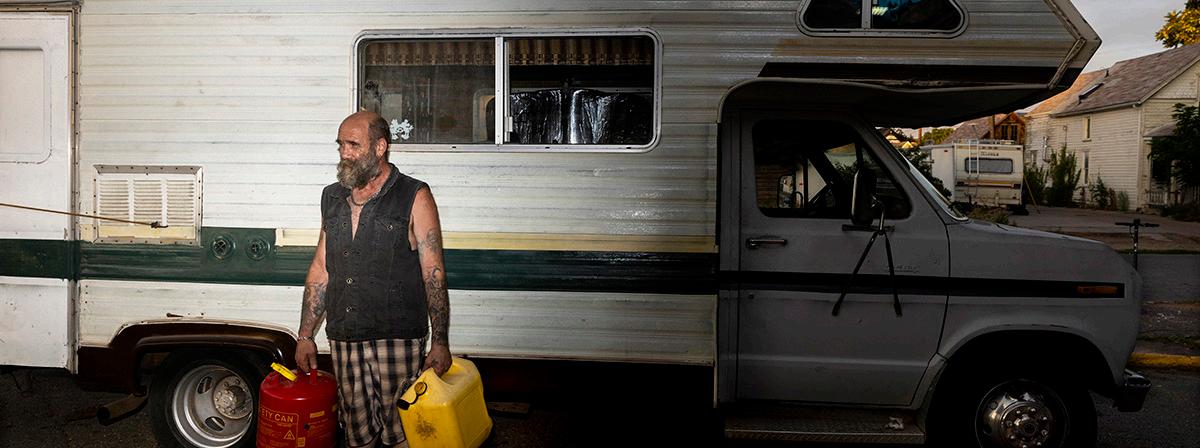
“It was scary,” Carter said. “It doesn’t sound too bad until you stay outside and you hear the noise of people walking past, talking, and chattering. It was a little unnerving.”
There has been a rise in the use of RVs by those experiencing homelessness in Denver. Cars and other vehicles are often the last resort for individuals who become homeless, but RVs are unique because they stand out when parked in Denver neighborhoods.
Denver does not have an accurate count of how many individuals are living in vehicles because the annual Point in Time study counts those living in vehicles as “unsheltered” like others living outside of transitional housing or temporary shelters.
Carter and her partner Cornelius Jenkins have been living in their 22-foot trailer for over 18 months. They have had to navigate Denver’s parking laws, deal with a hit-and-run, and respond to Denver’s weather extremes. Still, their trailer has become a home they worked hard to build.
Carter and Jenkins lost their housing when their son was arrested.
Carter and Jenkins moved in with their son in 2020 to provide support when their son began exhibiting chaotic behavior, trespassing at businesses, and eventually, was arrested. Their son lost his publicly supported housing in the process leaving Carter and Jenkins homeless.
“We moved in with our son to help him,” Jenkins said. “When he lost his housing, we lost ours. We sacrificed for him but lost everything ourselves.”
When her son was arrested, Carter lost her job, as well. Before then, she had been working to care for her son under Colorado’s Family Caregiver Act and was employed through the Mental Health Center of Denver, now Wellpower. Jenkins had his own handyman and construction company but struggled to find work in the early days of the pandemic.
“It happened so fast we couldn’t react,” Jenkins said. “We
did the best we could, and it led us here.”
After their eviction, Jenkins and Carter lived in hotels trying desperately to find a foothold and get another apartment. Instead, the cost of hotels depleted their savings.
The saving grace was that Jenkins did some construction work for a woman who had an old RV in her yard. The RV needed new tires but was mechanically sound.
“This RV saved us. It was the luckiest thing for us, or maybe, the best blessing. I don’t know where we would be without it,” Jenkins said
Offering security
Lisa Barczak, a peer support specialist with Stout Street Health Center, understands why individuals would try to live in a camper when homeless. Stout Street Health Center is a program of the Colorado Coalition for the Homeless that provides medical, dental, and vision services.
As Barczak pointed out, RVs are safer than sleeping on the sidewalk and have extra storage space, which is a precious commodity when most shelters don’t have storage.
Barczak, who does outreach to unhoused individuals throughout the Metro area, was homeless herself. She often slept on sidewalks without any shelter and had people pee and pour beer on her while sleeping. She even woke to men masturbating, she said.
“I do feel like having an RV would be worth it for having that peace of mind and having that safe place to sleep,” Barczak said. “[An RV] would be valuable to be able to actually sleep when you want to go to sleep, to lock the door and feel safe. When you’re sleeping outside on the street you really couldn’t be more vulnerable.”
Running afoul of the law
The added security of an RV comes with a unique cost. According to an email sent to Denver VOICE from the Denver Police Department’s Media Relations Unit, RVs longer than 22 feet that are parked on Denver’s streets must be moved 100 feet every 72 hours.
For the first few months in their camper, Carter and Jenkins spent their time trying to avoid the police. They moved their RV every few days and tried to stay under the radar. It didn’t matter. The two still accumulated their share of tickets.
Jeff Landis, another individual living in an RV, has also lived with this threat. He said the biggest hassle he faces is police and code enforcement.
“The cops want to run us off and call that the solution,” Landis said. “It is obvious the powers that be don’t want to help us. They want to run us off and move us one block away. But the problem isn’t solved, we don’t get help. It is just one big shell game.”
Landis would like to find stable housing. As he explained in an interview with Denver VOICE, he is tired of living in an RV. He is connected with services through the Colorado Coalition for the Homeless and works with a case manager who helps him apply for housing. But the wait for housing is long.
Landis has tried to find work but has not been successful.
“I can’t find a job in the best job market of my life,” he said. “And it isn’t because I’m not trying. It isn’t because I don’t want a job. When you’re homeless, you can’t find a job. It is discrimination because you don’t have clean clothes and you don’t have a shower. Who is going to hire you?”
Additionally, Landis has an injury he sustained after working in construction for 30 years, and that limits his options. He recently applied for Social Security Disability Insurance. Landis said he will continue to try and hide from police or parking enforcement until he can get an apartment or other housing.
“Sometimes. they find me and give me a ticket,” Landis
8 // STREET SENSE MEDIA // / NOVEMBER 9 - 15, 2022 NEWS
Jeff Landis said the expense of living in a camper adds up quickly, making it more difficult to find stable housing. “I need to panhandle $50 a day to get 10 or so gallons of gas. And 10 gallons don’t move a camper far.” Photo by Giles Clasen
said. “When I can’t pay the ticket, everything gets messier and harder for me. The next ticket or the ticket after that may mean I get booted or towed. and then, I lost my last bit of shelter. That added cost [of moving the camper every day] means it is even harder for me to get out of this mess.”
To avoid parking tickets, Jenkins and Carter explored renting space at an RV park. The cheapest they could find was $900 a month, but Jenkins felt it was a “shady” deal. He said a decent one costs $1,400 a month, which was outside of their budget.
Eventually, they were lucky to receive an invitation from a friend to park on private property in Northeast Denver. This has ended their run-ins with law enforcement, and now, the two consider the RV their tiny home.
“I love living in our RV,” Carter said. “We had to simplify our lives to make it work. We had to get rid of almost everything because there is [little] storage, but it works for us.”
Always at risk of losing a home
In addition to the stress and ticket fees, RV owners experiencing homelessness face other costs like licensing and insurance, which can put housing even further out of reach.
“A lot of these vehicles don’t run, and the ones that do are in constant need of repairs and money to fix them,” Barczak said.
And leaving a vehicle, even if it’s to get services or health care, can result in a vehicle being towed. When an RV is unattended, it could be considered an abandoned vehicle.
Landis has experienced additional difficulties because his RV needs repairs. He is trying to do the repairs himself, but it is expensive. He is hoping his current parking spot is far enough off the beaten path he won’t be noticed before the repairs are complete.
As the Denver Police Department media relations unit explained, if a vehicle has been determined to be abandoned, they issue a Notice of Abandoned Vehicle and route the information to the Denver Sheriff’s Department Impound, Abandoned Vehicle Unit.
The department does not track how many complaints come in about RVs on Denver streets because there is not a specific nature code in the dispatch system, they added.
According to Barczak, the threat of being towed prevents some individuals from coming to Stout Street Health Clinic for medical care or other services.
“I’ve had clients whose vehicles were towed while they were meeting with me for two hours at the clinic,” Barczak said. “They come back, and their vehicle is gone. [They lose] that last little bit of safety and privacy.”
RV living and lost opportunities
The requirement to move a vehicle every 72 hours can cause Barczak and the Coalition to lose track of individuals as well.
“[When individuals move their campers] it makes it very difficult for people to access services. By being forced to move every couple of days, they have to keep starting over, and starting over, and starting over,” Barczak said. “We have people every day that qualify for housing vouchers. We have maybe two weeks to find them, or the voucher goes on to someone else, and they lose this opportunity because they’re having to constantly move around.”
According to the DPD media relations unit, DPD officers can request the Support Team Assisted Response (STAR) unit to engage unhoused individuals living in RVs, rather than directly engaging and issuing citations.
The STAR program is a specially trained unit that sends mental health specialists or paramedics to respond to nonviolent situations. The unit, founded in 2020, is designed to “engage individuals experiencing crises related to mental health issues,
poverty, homelessness, and substance abuse,” according to its website.
During several months of conducting research and interviewing individuals at multiple RV camping locations for this article, none of the individuals who spoke to Denver VOICE had been contacted by the STAR unit. Instead, many of these individuals reported being harassed by on-duty officers.
Jeff Landis said he had been heavily monitored and harassed by one specific officer but did not want to give the officer’s name for fear of future retaliation.
Not all interactions with officers were negative, though. Josh, who asked to be identified by only his first name for privacy reasons, said a DPD officer helped him when he was unable to start his RV. The police officer had Josh’s camper towed to another location at no charge. According to Josh, the officer thought the new location would be a safe place to park while the vehicle was being repaired.
Seeking a new option
One organization working towards a solution for individuals living in RVs is the Colorado Safe Parking Initiative, which offers overnight parking for individuals living in vehicles throughout the front range.
The organization partners with faith-based organizations and businesses to provide overnight parking at 12 different locations throughout the metro area. Every vehicle must move in the morning because the current lots are used by the host locations for business or programming purposes.
“Each lot has a lot of autonomy [to decide who can park and for how long],” CSPI Executive Director Terrell Curtis said. “Right now, they only operate overnight, and the vehicles leave in the morning, and that makes it a lot harder with an RV.”
Curtis said it is unreasonable to expect unhoused individuals to get off the street on their own, and this expectation comes from a level of ‘privilege’ that is out of touch with the realities of homelessness.
“We need to shift our systems and lower barriers to accessing housing,” Curtis said. “There are shelters and affordable housing that you can’t go to if you have some sort of criminal background or drug offense. Most shelters also don’t allow pets. We need to be realistic about the needs. You’re going to be lucky if you can get into housing.”
CSPI does not currently have a lot dedicated to RVs, and not all lots allow RVs to utilize the service.
“We want to [open a parking lot specifically for RVs] because there is such a high need,” Curtis said. “The City
of Denver zoning allows it, but it falls under an ordinance [governing] trailer parks. If we provide for several RV-type vehicles together in a space, it is considered a trailer park, and we have to provide dump stations, electric hookups, and all this other stuff that we’re not in a position to do right now.”
CSPI was awarded a $150,000 contract from the city to operate a parking site and to explore providing an RV-specific lot. But the unique requirements of zoning laws for mobile homes and trailers may not make a lot dedicated to RVs feasible.
Many of those who park at CSPI have jobs and are experiencing homelessness for the first time. Most are trying to work while actively seeking permanent housing – all while trying to stay safe without running afoul of the law.
“There is trauma that comes with the uncertainty when you’re living on the edge,” Curtis said. “You’re trying to stay warm; you’re trying to stay cool, and you’re trying to get to work and not look like you spent the night in your car. That level of anxiety wears on you. Living in a heightened state over time is damaging. Even just one night would be traumatic, especially over time. It can impact folks’ resilience.”
Individuals staying in a safe parking lot do have the security of being in the same place every evening. This makes accessing case managers from different service providers easier.
Focusing on family
Jenkins and Carter are trying to make their 1979 Itasca Suncruiser RV road-ready by repairing the engine. Their hope is to either trade in their current camper for a larger and more reliable model or make their current camper safe to travel with.
The two would like to move to Detroit before winter sets in. In Detroit, the two plan to buy an inexpensive house at auction and repair it. They know there is a risk in trying to make a dilapidated house livable. But they don't see another path out of homelessness and are betting on Jenkins' skill as a handyman and builder to construct a new home.
If the rebuild goes as planned Jenkins is hoping to make a business of buying abandoned houses, rebuilding them, and then selling the homes.
Carter and Jenkins feel Denver is not a viable future because of increased housing costs and a lack of support to help them recover from homelessness, and they don’t want to live in their camper forever.
Courtesy of Denver VOICE / International Network of Street Papers
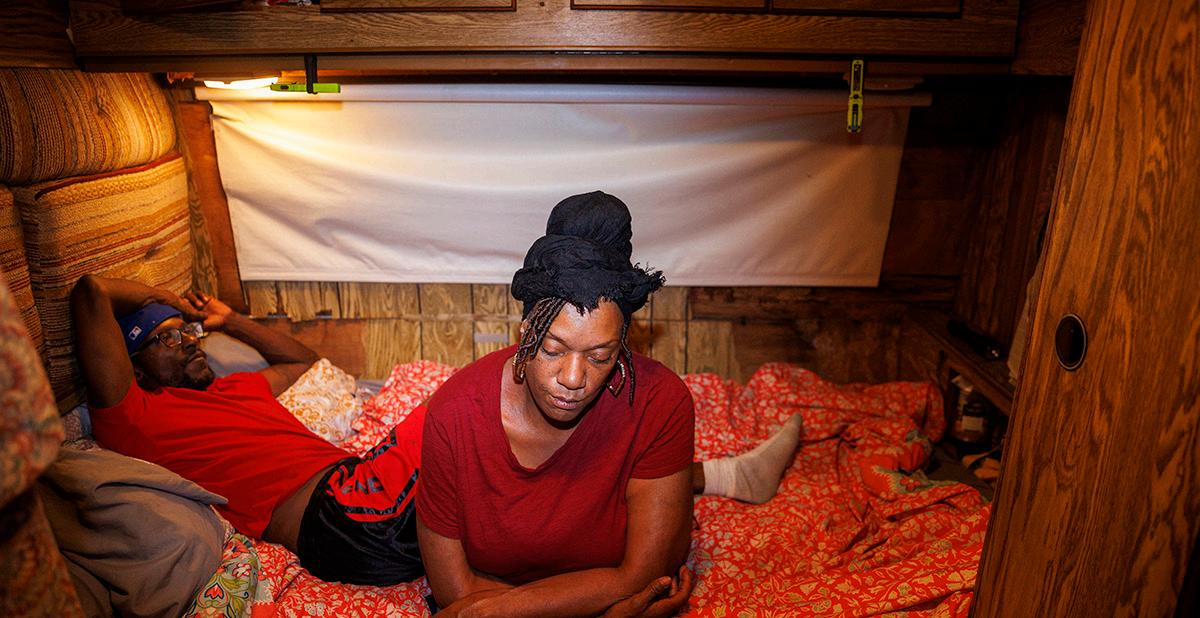
STREETSENSEMEDIA.ORG // 9
Devine Carter and Cornelius Jenkin moved in with their son, who was diagnosed with schizophrenia, to help him. They became homeless when their son lost his housing due to a mental health crisis.
Photo by Giles Clasen
Health care and education can help to decrease Black baby and mother mortality
JACQUELINE TURNER
There is a high rate of death in the Black community for women and babies during labor and delivery. Black people accounted for 90% of pregnancy-related deaths in D.C. from 2014 to 2018, while white people experienced no pregnancy-related deaths, according to the city’s 2020 Maternal Mortality Review Committee report. The infant mortality rate was much higher for babies of non-Hispanic Black mothers (11.49 per 1,000 live births) than for babies of non-Hispanic white mothers (2.55 per 1,000 live births) from 2012 to 2016, according to the city’s 2018 Perinatal Health and Infant Mortality Report.
I have asked some people of color what they think about this. One lady said mothers don’t always follow doctors’ orders, don’t always eat nutritional food, and don’t always get proper prenatal care. From the male point of view, a man suggested to me that the birthplace should be at home, because there are not enough hospitals in the Black community.
I think this problem is caused by a combination of things and needs a combination of solutions. Individual support to build up faith and confidence. Medical support to become and stay healthy. A loving environment to keep strong. And a higher power than yourself to keep you going. My way is to pray and ask God to help.
The health care you get in lower-income neighborhoods is
inferior to the health care you get in middle-class neighborhoods, and you know it’s inferior to the health care in upper-class neighborhoods. They have problems in poor neighborhoods that people in other neighborhoods could never think about, and so health care workers sometimes think, “These people are not worth saving.” But it’s because people in lower-income neighborhoods sometimes don’t have people to watch over them or take good care of them, and they don’t always have parenting skills. It’s like a cycle that comes around. They get stuck in it.
Girls and boys try to imitate what their mothers and fathers do. They’re trying everything they can do to be like adults. Then around seventh or eighth grade, some girls get pregnant, and their parents are wondering, “Why is this happening?” They didn’t know any better. No one explained to them about the actual act of sex. When girls do get pregnant and they find out, they don’t know what to do. They don’t want to tell their parents, so they’re going on five or six months before anybody knows, when they start to get big. They can’t get an abortion because it’s too late, and some of these people don’t believe in abortions. And the boys don’t know what to do but hold your hand and rub your hair and say “Don’t worry, we’re going to make it, I’ve got my lunch money.”
When I was going to school, they had this program in the District called “personal and family living,” which started in junior high school. It covered pregnancy and sexual diseases,
and it also covered the role of mother, the role of father, and what you need to be equipped emotionally to handle a family. Children today need real sex education and they need real family education. I think that education should start in the fifth or sixth grade. By the time they get to eighth grade, it’s been there, done that.
We need groups like Mamatoto Village and House of Ruth to support women who are pregnant and in trouble, whether from homelessness or illness or mental problems or low self-esteem. We need programs to help unwed mothers, mothers who want to adopt, who want abortion rights, who need help with incest, and so on. These organizations should cover everything from how to get along with your parents to how to deal with the pregnancy situation. The message should be: you’re not a villain, you’re not a monster, you’re not no good, you’re not ruined. You’re just having a baby. People do it everyday. And it is your choice.
Churches do a lot too, but I think they could do more. When it comes to telling people about forgiveness and how to overcome and bypass problems, churches shy away. If you’re going to condemn somebody for something, like getting pregnant, teach them a better way. After all, people are only human.
Let’s prevent domestic violence before cases escalate to the court system
MAURICE SPEARS
October was Domestic Violence Awareness Month. I attended an event about the topic on Oct. 25 at Busboys and Poets Anacostia, hosted by the Mayor’s Office on Women’s Policy and Initiatives, DC Black United Front, Domestic Violence Wears Many Tags, the Association of Black Social Workers and ANC 8C.
I have learned there are different levels of domestic violence, from homicide to assault to screaming to disputes. Sometimes domestic violence can be serious, and sometimes it’s not as serious. This has confused the court system and the government. Judges aren’t paying attention to how serious cases are — or aren’t. And people are being punished for something they don’t even know the definition of.
It takes two parties to do domestic violence; people do it to each other. One person is not just innocent. If one person calls 911, and says, “This is domestic violence,” well, how did that incident occur? How did it start? We don’t know.
And yet, usually both people are not charged as guilty. I think the court system needs to start screening domestic violence
cases and charging both parties. This is how we are going to know if this case is serious or not. If you just charge one party, that’s not fair. There’s always two sides to a story. We need to start screening and charging both parties so we can know what’s real and what’s not and so everybody can be held accountable.
Some cases have been frozen because of the pandemic, and it has the system all screwed up. We need to start throwing cases out. It’s wasting a lot of tax dollars. People need to come home. When people have cases that are so old that they have no more contact with the other individual involved, I think they should go ahead and just drop the case. I am involved in a case that has been going on for a few years, and it still hasn’t been thrown out. I have a lot of friends who are going through the same thing.
We could promote the city’s crime-victim hotline (844-4435732) as a number for people to call before a crisis occurs. Case managers and social workers could be available to talk to people on the phone, 24/7, to calm them down. When you’re around a different individual, you can calm down.
We need education about domestic violence offered by the Federal Bureau of Prisons for returning citizens before they
come home, and we need classes out in the community, too. I think that every nonprofit should have domestic violence classes, to avoid a lot of the violence that is going on before it escalates to a different level. Young people encounter this as well, so it’s important to talk about this about youth, not just adults.
We need to learn about behavioral and spiritual health. An individual might not understand what the other individual is going through at the time. Sometimes a person might be trying to help another person, not harm them, but doesn’t know how to communicate with that other person.
When people in a relationship are upset with each other, they need to start talking things out, and if they can’t talk it out, they need to separate. They are grown. They are adults. Sometimes I know it’s hard, and people are in love, but get some time apart for a while.
Maurice Spears is a vendor and an artist with Street Sense Media.
OPINION 10 // STREET SENSE MEDIA // / NOVEMBER 9 - 15, 2022
Jacqueline Turner is an artist and vendor with Street Sense Media.
Another love poem
ERICA DOWNING Artist/Vendor
Love
What’s love?
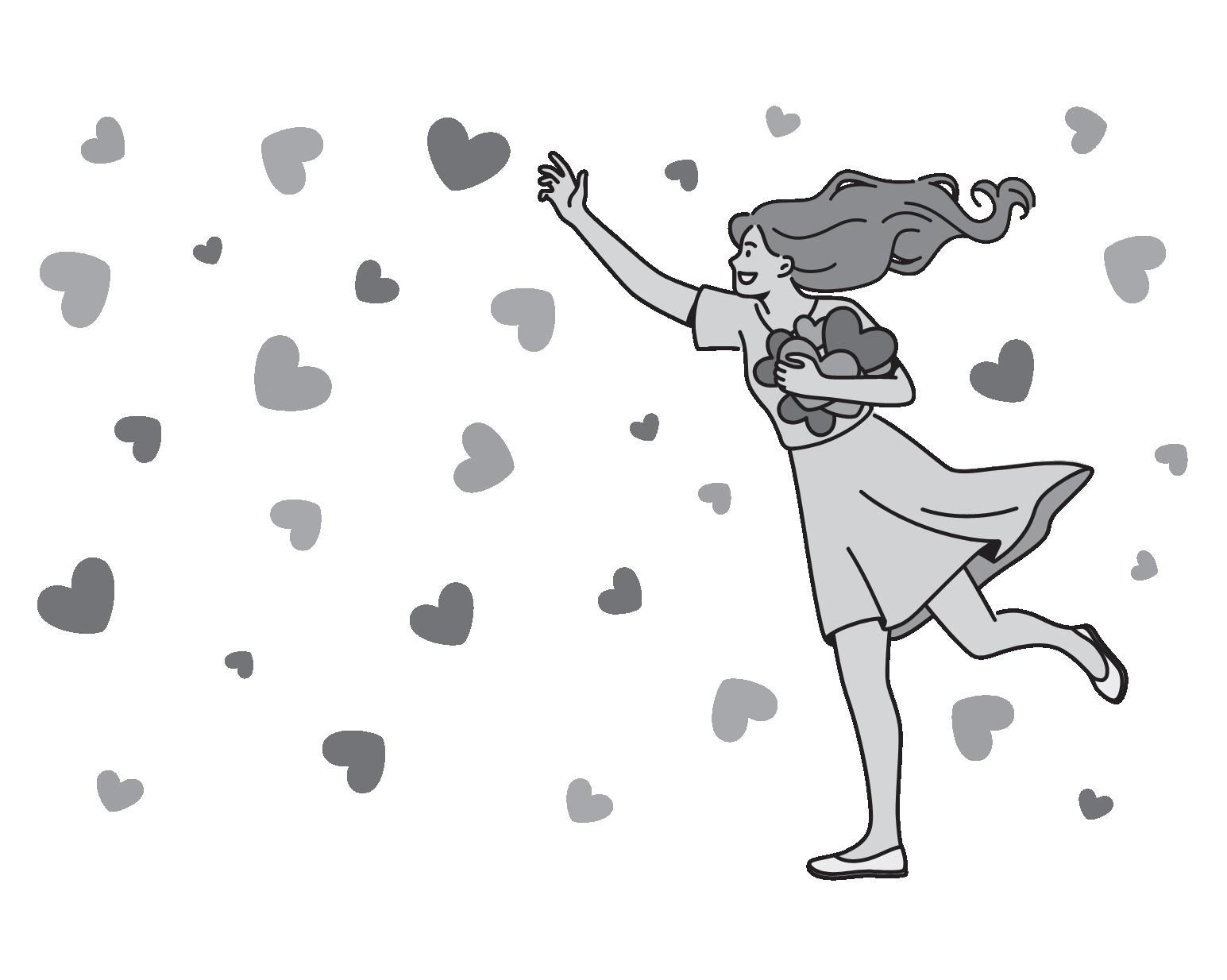
Love is unconditional and caring, not asking “what’re you gonna do for me?” Or, “if you love me, you’ll do this.”

Love is embracing and kind, not malicious and uncaring words filled with selfish and greedy desires. Love is strong and understanding, like a child learning their way in the world. The way that’s taught is on display; habits filled with empathy, nurturing, and positivity. Love should be warm and gentle, a cool breeze on a hot summer eve, but the love received is like a harsh winter gust in temperatures below freezing. When the day comes for the season of change, love will bloom like orchids.
My best friend
ANTHONY CARNEY Artist/Vendor
I met my best friend Daniel Ball at Street Sense. I love him. He loves me. We are brothers for life. We get along very well. We are about the same age. We grew up around Addison Road in Seat Pleasant, Md. You’re my best friend, Daniel. I want you around all the time. Spread love.
Come and go
CANDACE WILKES Artist/Vendor
Friends come and go. Cherish the good moments because, boy, does the time go by. One year and two years — you don’t know. Friends walk into your life with a single hi, and sometimes you never hear a bye. What feels real might not be and becomes entangled with hatred. What happened to love we had at first sight? Time is not ours to keep or hold. Sometimes your heart is weak and it's just hard to let go.
Sleeping with the enemy
LATICIA BROOK Artist/Vendor
What I thought was love was lust. When I should have left, I stayed, and my mind got played.
Seen ladies shake the haters off and dust yourself off, and try again.

Just know the next relationship you get in, you know how much of your heart to put in. God loves us and doesn’t want us to hurt, not someone who’s gonna play you and turn your name into dirt but homeless lives matter is all I know helping people get housed and keeping their mind is all I care about. So kick rocks by day.
Arguing, pouting and fighting is not what I need now. I’m listening to “zoom” oldies that come out. When I should have left, I rolled, but all things broken can get fixed.
I spent my teens in the D.C. jail.
I could have seen 51 states, I could have been somebody, not bombing bodies.
I thought you were at least a friend to me. Not the whole eight years, I’m sleeping with the enemy
Dreams of being new

 CARLTON JOHNSON Artiat/Vendor
CARLTON JOHNSON Artiat/Vendor

To hold my arms open, looking for some new things to hold The old has played out Unfolded is my time of day
Tonight I look into my dreams of being what I wish To become before the days of old the touch of all say Will come soon hour after hour I soon will be new on top of my game
Kiss
KYM PARKER Artist/Vendor
A kiss is so intimate, feeling someone else’s life, heart with heart.
A kiss is so beautiful, connecting soul to soul.
A kiss is feeling someone else’s love and giving it back in return.
A kiss is passion, it is lovely, sweet, honest.
A kiss is a poem.
Smile
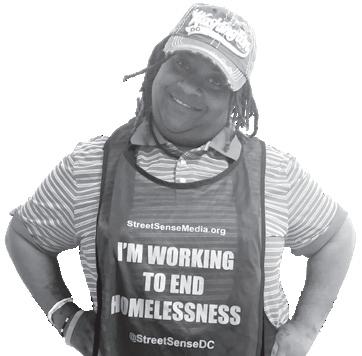 NIKILA SMITH Artist/Vendor
NIKILA SMITH Artist/Vendor
I hired somebody to find my smile It used to be there, so bright and clear
I hired somebody to find my smile It tells a story of a woman with no fear
I hired somebody to find my smile If you saw it, you would stare
I hired somebody to find my smile My smile is part of my style
I also need to find it It’s also my inner child
I hired somebody to find my smile But they couldn’t find it Because they stole it
My smile looks good on me Yours looks good on you
STREETSENSEMEDIA.ORG // 11
ART Story
GRETA CHRISTIAN Artist/Vendor
My true story.
My child.
When I was a little girl the kids did not like me because I stayed to myself.
When I grew up, things had changed over time.
My mother had three children — Two girls and one boy.
My mother lived in Shady Side, Md. Mother and father,
Everything changed when my mother and father got divorced and my mother moved on.
Then I had a stepfather, too, I was close to him. I am not close to my real father.
My mother and my step-father lived in Northeast Washington, D.C.
I eventually got married to my husband Paul. My husband passed away a long time ago.
I had a job.
Everything came apart living in a shelter and being homeless. You never forget where you come from.
My stepfather passed on.
My mother moved to another place. I stayed with my mother because she got sick and then passed on.
I love to work.
I love singing songs. I love to paint.
Funnies
ROCHELLE WALKER Artist/Vendor
Q: What did the king say to Michael Jackson?
A: I am the king of pops!
Q: You get it, I got it
A: Got what? (COVID-19)


Q: What kind of dog do you love to watch on TV?
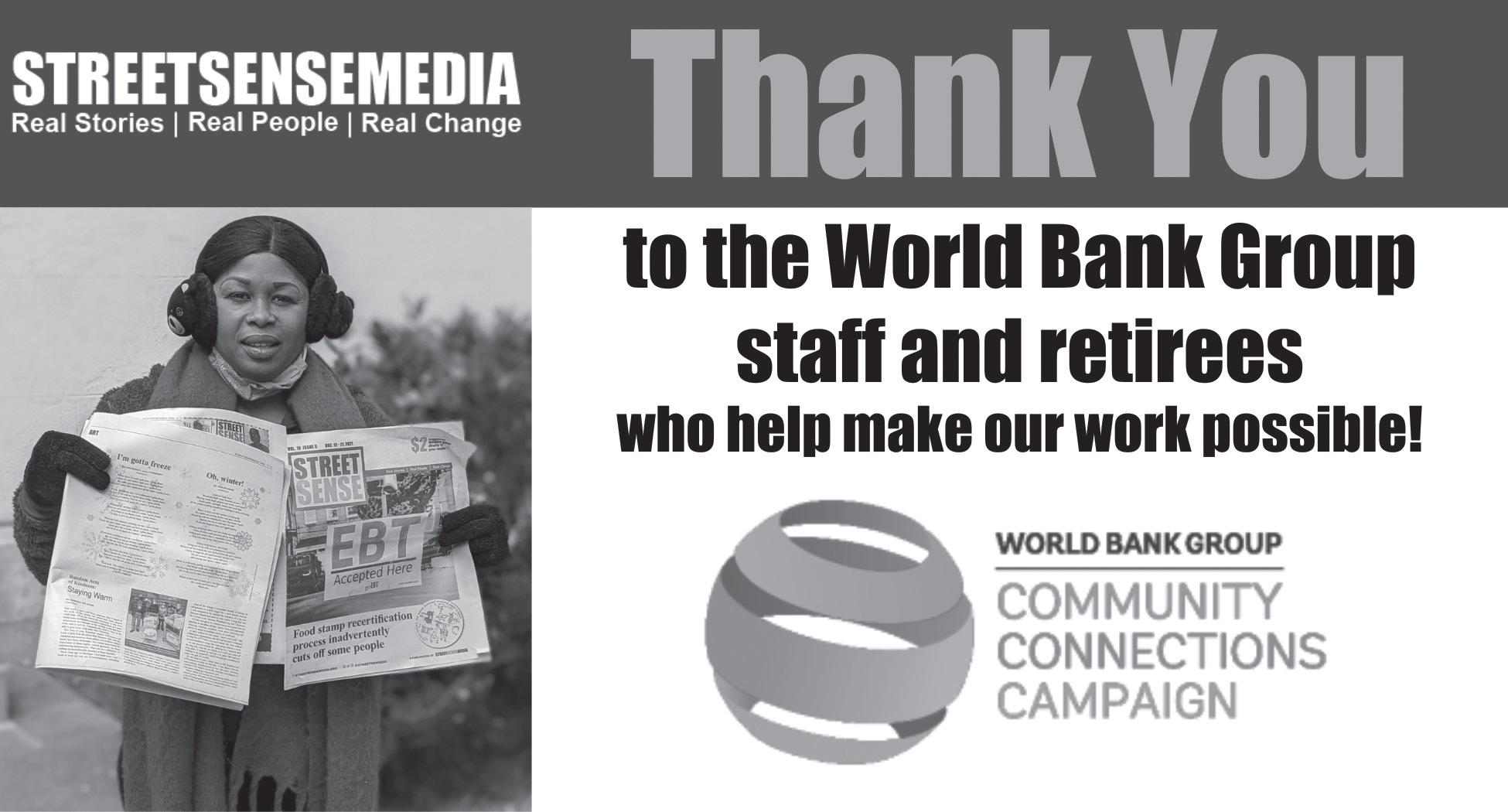
A: Scooby-doo!
Q: What do the people of the world say to God?
A: Where is your beginning?
Q: If you planted money, what would you sow?
A: Money.
Q: Why did the skeleton go out alone? A: He had nobody to go with him
Q: What did the old ghost say to the young ghost?
A: Get a life!
Q: Knock Knock
A: Who’s there?
Q: The evil witch, who?
A: Which one of you witches filled my bag with candy?
Q: What did A say to B and C?
A: Where is my little D?

Costs
RONALD SMOOT Artist/Vendor
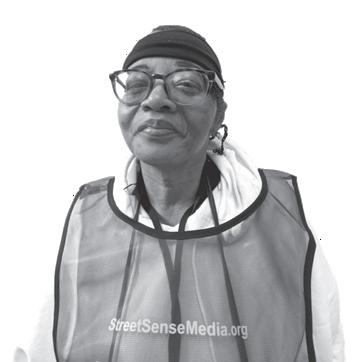
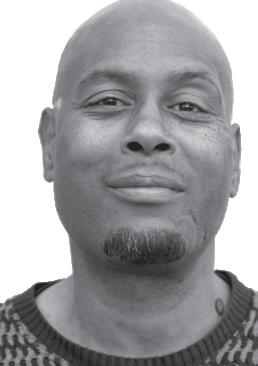
I will be so happy when I start to work again and meet a lot of co-workers. We will do a lot of overtime so our checks will look good. Then, I could go to the ATM to get cash to put in my pocket to go to the store. I love to go to the mall to shop and have money in the bank. I can’t wait for the day Street Sense becomes a side job.
It’s so hard out here, the cost of living is so high. Rent went up, and the cost of food went up, too, and people need to have more money so they can live. What do they think people are supposed to do when the price of everything goes up? We need high-paying jobs in the community. The only thing I can do is pray to God that I will be fine. I’ve been thinking about leaving this city because the cost of living is so high.
1971MICHELE ROCHON Artist/Vendor
While attending Catholic school, I realized that the Daughters of Charity lived a Spartan life, marked by simplicity. I had an opportunity in the fifth grade to assist my teacher, Sister Clara George with cleaning the church that sponsored our school, which was Saint Martin’s School. Once a week we cleaned all the pews, the goblets used for communion and the communion plates.
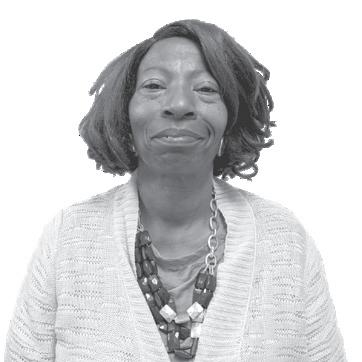
During one of these cleaning sessions, my teacher shared her daily schedule with me. It included 5 a.m. prayer, reciting the liturgy, rosary and lighting of candles. She also told me that she prayed for our class.
I left that day thinking about the life she lived. It was so simple. I thought about how she centered her prayer around my fifth grade class. Sister George was not someone who I initially saw eye to eye with. She had sent several notes home regarding my use of too much paper, and my overall general attitude. I’m glad we ended our relationship on a positive note.
12 // STREET SENSE MEDIA /// NOVEMBER 9 - 15, 2022
Find time
ROBERT WARREN
Artist/Vendor

Life is fine. If I had a dime every time somebody told me about what’s wrong with the world today…
There’s no time for little boys and girls to just be little people. I always praise the Lord every time I see a mother with her baby, living in those wonder years, before someone colors their hair blue, just like you. I wonder what that is all about.
I’m old school, you see. I’m one who believes people are people and anyone can be a believer and do amazing and extraordinary things.
Who would believe in America today, with all the words that go in chat rooms? The Internet connects you to the world. War in Ukraine will never be the same and someone actually planned to break the knees of the speaker of the house. When those on the right have been quiet as a mouse, and when those on the left act as though they’re holier than thou, say it loud — I’m Black and I’m proud. Sometimes I wonder why justice hasn’t been served, is it really blind? Or is it just a sign of the times we live in today? What can one say but I’m fine, or as my baby girl would say, I’m good. Thank the Lord she made it home from school. I can’t believe the things we do. A 4-year-old was shot in Washington, D.C. — a drive-by shooting. Who would believe I need to be speaking to a psychiatrist, get me some therapy. I’ll try writing some poetry
My children
DARLESHA JOYNER Artist/Vendor
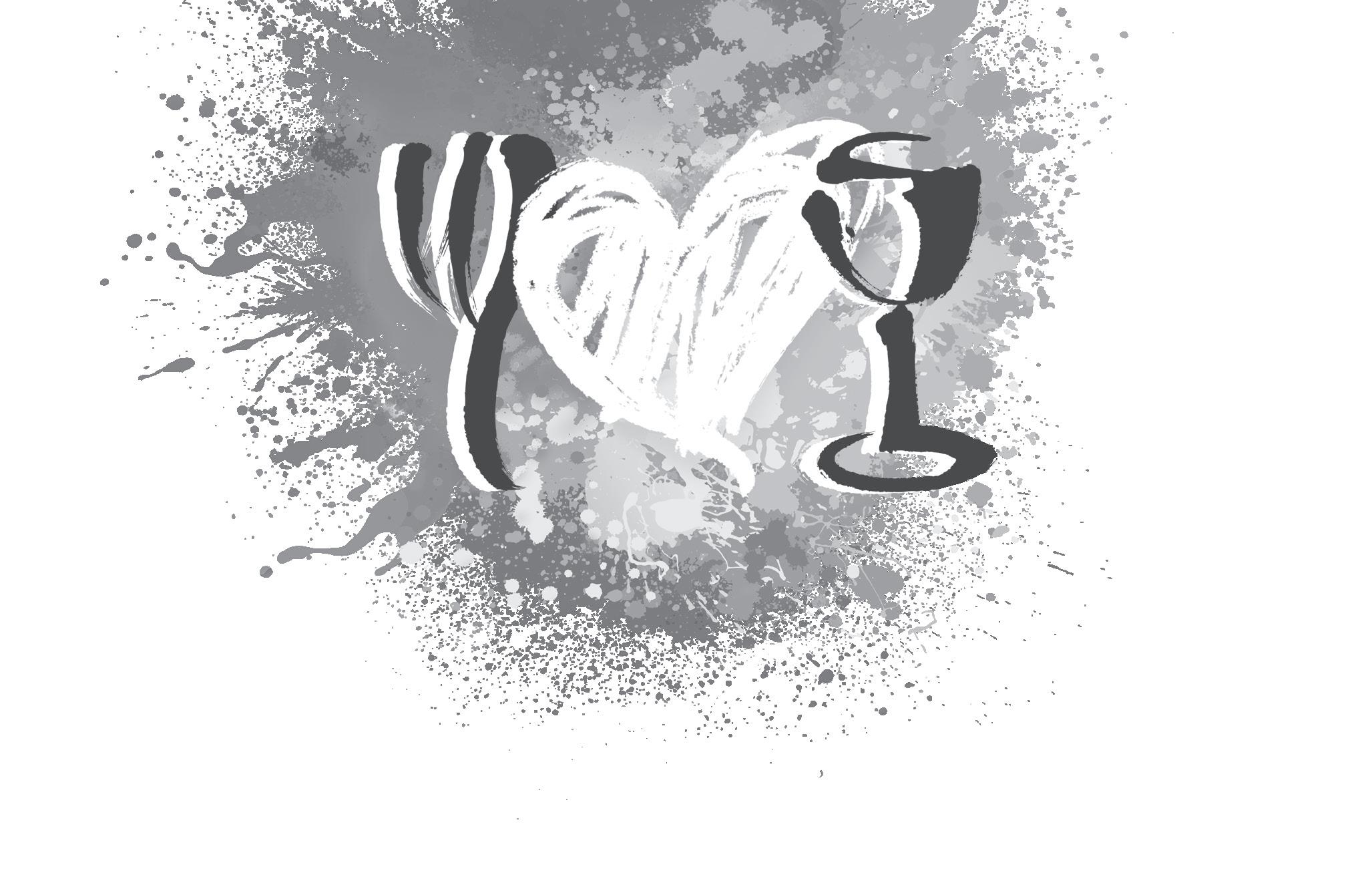



I am looking forward to the teenage years with my daughter Alicia. It will be a great adventure together.
I pray and hope I get access to my money and the two houses my mother left me. It’s crazy how my rights have been terminated for my children because of the way people feel that I am not capable of caring for them.
Insulting
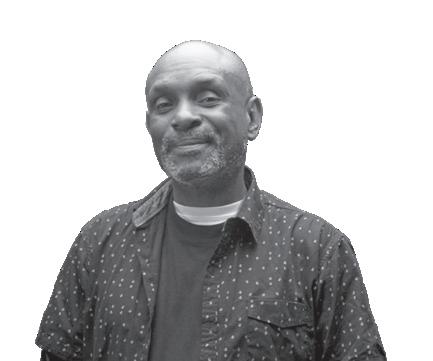 PHILLIP BLACK Artist/Vendor
PHILLIP BLACK Artist/Vendor
It’s a good thing to sell Street Sense. There’s a good side to it, but there’s a bad side to it too. People will insult you, most times. Most times they will say things like, “Hey, Cat in the Hat, take that hat off.” Or sometimes they will say, “Get a real job, dumb dumb.” One time, a lady called out to me and said, “Hey bubble head, all you need is a red nose and a pickle in your mouth, and I might buy a paper.” So, for our younger vendors, don’t ever get mad when someone talks bad about you. You better get used to it.
We are devoted to being a good neighbor in every community we serve. That’s why we’re working with customers like you to help our communities thrive. Your support allows us to give more and do more to improve lives and make our neighborhoods stronger. Thank you for helping us make a difference.
STREETSENSEMEDIA.ORG // 13
202-449-1600 • WISCONSIN AVE. 41 Ridge Sq. NW, Washington, DC 20016
8 2
Across 1 Some computer monitors, briefly 5 Well wisher's word 10 Sound of Alka Seltzer hitting water 14 Worldly rather than spiritual 15 Island between China and Taiwan 16 " Man" (1984 cult film) 17. An insect and a musical group are in his name 20 Duel choice 21. Bangor or Tacoma 22 Abscam creator 23 Geneticist's study 24 An armed conflict and type of poet are in his name 30 Early stages 31 Some are minimum 32. System lead in 35 Meander 36 Stock holders? 37 Persnickety one 38. Abbr. on many food labels 39 French toast ingredient? 40. Golf rarity 41 A cheer and a victory are in her name 43. "Fiddler on the Roof" concern 46 Never, to Boris Becker 47 Like some Kurds 49 Shames 53 A fib and an intonation are in her name 55 Granny, for one 56 "The Wreck of the Mary " 57 Dangerous marine
-Edgar R. Fiedler
CONTROL’s enemy on “Get
Smart” 7. N.Y.C. betting setting 8. Gray and Candler 9. Crescent-shaped outlines 10. Buy online, e.g. 11. “Vive
the
king!”)
Down 1. Sound of thunder 2 Rampur royalty 3 Bearded (reedlings) 4 One way to get off 5 Zack Mosley's comic strip " Jack" 6 CONTROL's enemy on "Get Smart" 7 N Y C betting setting 8 Gray and Candler 9 Crescent shaped outlines 10 Buy online, e g 11 "Vive !" ("Long live the king!")
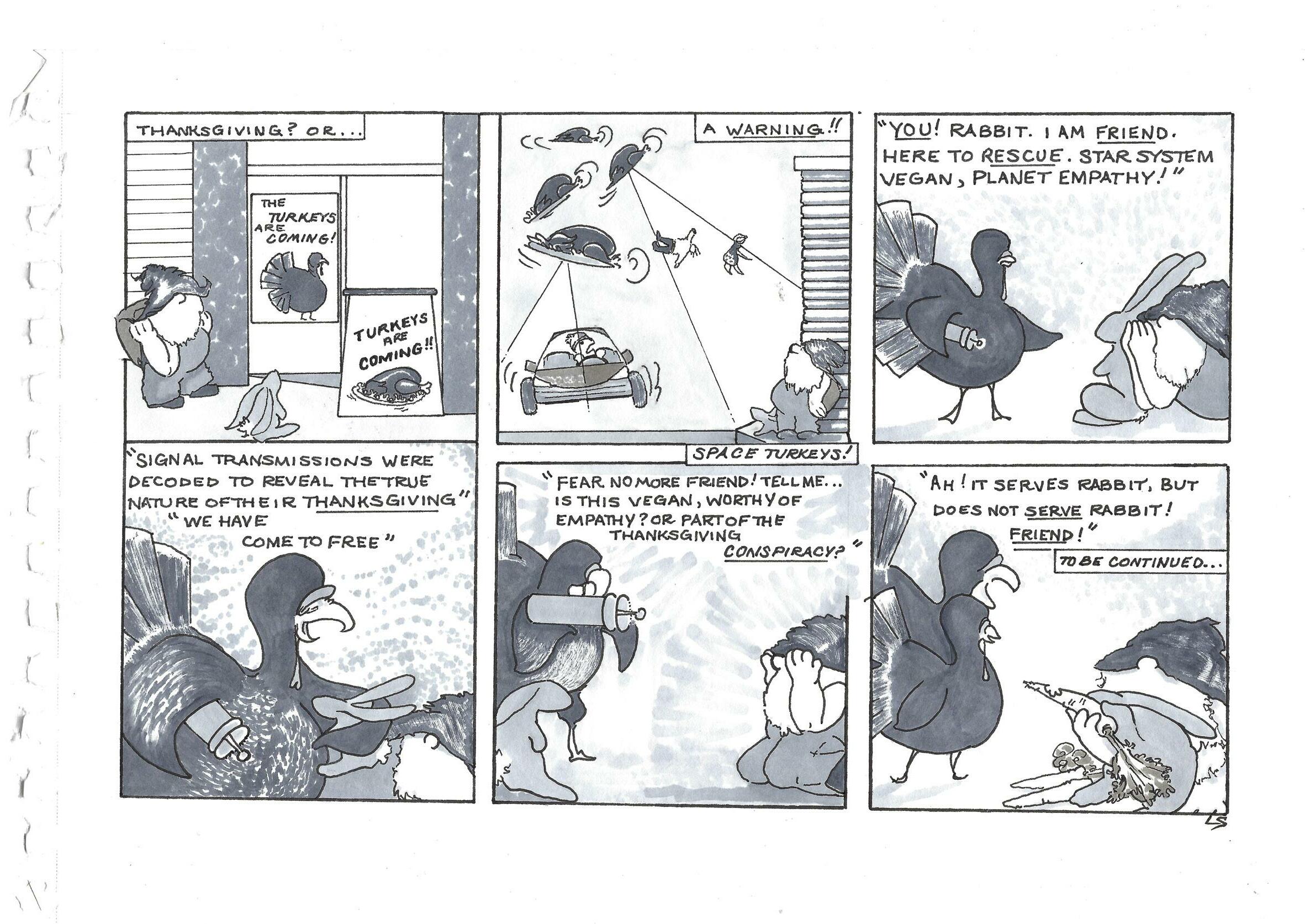

Modeled
Strong as
“Please reply”
“Call Me ___” (1963 Bob Hope film)
Buck classic “The Good ___”
One of Nixon’s vices?
RR employee
Either “Unforgettable” singer
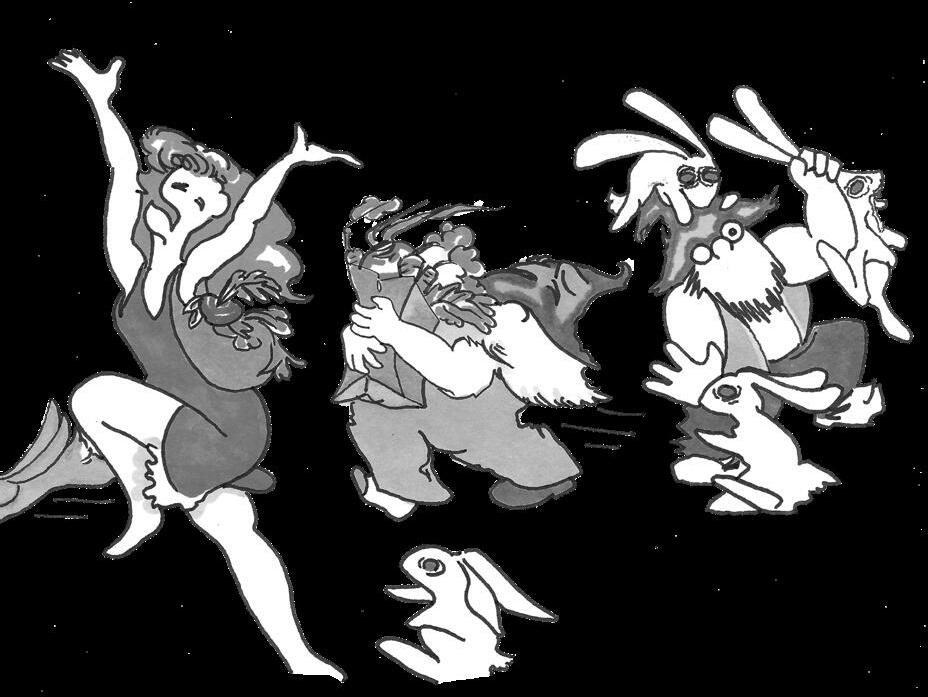
One-time marriage vow word 36. These gals mix it up
Golfer’s maneuver
Treat too well 40. Pioneer computer 41. Highly decorated 42. Inherent 43. Left-winger of years past 44. Long-armed ape 45. Croc relative 48. Brand of depilatory 49. Prefix with ballistics or magnetic 50. Loser in a fictional upset 51. Suffix for depend or differ 52. A Laurel 54. Kipling peacock
39. Treat too well 40 Pioneer computer 41 Highly decorated 42 Inherent 43. Left winger of years past 44 Long armed ape 45. Croc relative 48 Brand of depilatory 49 Prefix with ballistics or magnetic 50 Loser in a fictional upset 51. Suffix for depend or differ 52 A Laurel

14 // STREET SENSE MEDIA // / NOVEMBER 9 - 15, 2022 FUN & GAMES Intermediate Sudoku by KrazyDad, Volume 20, Book 50 Sudoku #2 1 9 4 6 5 3 8 7 1 2 5 9 5 6 9 2 7 2 3 4 9 6 3 1 5 9 4 7 8 2 9 8 1 6 3 7 2 5 4 2 7 4 3 6 1 9 1 8 9 2 3 2 8 3 7 4 6 4 3 7 1 8 5 6 8 1 4 2 7 5 9 3 6 1 8 8 5 4 6 5 7 Sudoku #4 5 7 6 6 8 9 4 2 5 8 3 4 2 7 1 6 6 1 9 4 7 5 2 3 5 9 4 2 9 6 5 3 8 7 1 9 4 3 2 6 8 7 2 6 8 9 3 7 6 4 4 2 1 3 9 8 1 7 3 9 5 8 3 7 2 1 8 6 4 1 5 7 4 1 5 5 3 8 1 2 9 Sudoku #6 5 2 4 7 3 4 6 8 9 5 2 7 3 7 9 2 1 8 7 2 5 4 9 1 3 1 9 2 7 9 2 7 1 3 6 8 1 4 9 6 3 6 9 4 3 5 7 1 1 9 6 4 8 8 6 1 9 1 3 5 4 6 8 6 3 4 6 8 5 5 8 4 7 5 2 8 2 2 3 7 5 Sudoku #8 5 2 8 9 1 3 6 7 4 & Fill in the blank squares so that each row, each column and each 3-by-3 block contain all of the digits 1 thru 9. If you use logic you can solve the puzzle without guesswork. Need a little help? The hints page shows a logical order to solve the puzzle. Use it to identify the next square you should solve. Or use the answers page if you really get stuck. © 2019 KrazyDad.com Sudoku #7 Intermediate Sudoku by KrazyDad, Volume 20, Book 50
9
3
7
1 7 3 4
Never underestimate the power of a platitude. 7
5 1
6 5
2 4 6
1 5 2 1 8 6 8 7
Find the solution at https://onlinecrosswords net/7335 OnlineCrosswords.net This is the Daily Crossword Puzzle #1 for Nov 7, 2022
Across 1. Some computer monitors, briefly 5. Well-wisher’s word 10. Sound of Alka-Seltzer hitting water 14. Worldly rather than spiritual 15. Island between China and Taiwan 16. “___ Man” (1984 cult film) 17. An insect and a musical group are in his name 20. Duel choice 21. Bangor or Tacoma 22. Abscam creator 23. Geneticist’s study 24. An armed conflict and type of poet are in his name 30. Early stages 31. Some are minimum 32. System lead-in 35. Meander 36. Stock holders? 37. Persnickety one 38. Abbr. on many food labels 39. French toast ingredient? 40. Golf rarity 41. A cheer and a victory are in her name 43. “Fiddler on the Roof” concern 46. Never, to Boris Becker 47. Like some Kurds 49. Shames 53. A fib and an intonation are in her name 55. Granny, for one 56. “The Wreck of the Mary ___” 57. Dangerous marine creature 58. Shrek, e.g. 59. Didn’t take any cards 60. Tiger Beat reader
18. "Check," in poker 19 They're thrown at a pub 24. Modeled 25 Strong as 2 6 "Please reply" 27 "Call Me " (1963 Bob Hope film) 28 Buck classic "The Good " 29 One of Nixon's vices? 32 RR employee 33 Either "Unforgettable" singer 34 One time marriage © ONLINECROSSWORDS.NET
12. Dizzying pictures 13. Sentry stations 18.
19.
>> This crossword puzzle’s answers: https://tinyurl.com/SSMcross-11-09-2022 << LAST EDITION’S PUZZLE SOLUTION
Down 1. Sound of thunder 2. Rampur royalty 3. Bearded ___ (reedlings) 4. One way to get off 5. Zack Mosley’s comic strip “___ Jack”
6.
___!” (“Long live
“Check,” in poker
They’re thrown at a pub
24.
25.
___ 26.
27.
28.
29.
32.
33.
34.
37.
39.
COMMUNITY SERVICES
Housing/Shelter Vivienda/alojamiento
Case Management Coordinación de Servicios
SHELTER HOTLINE
Línea directa de alojamiento (202) 399-7093
Education Educación Food Comida
Academy of Hope Public Charter School 202-269-6623 // 2315 18th Place NE aohdc.org
Bread for the City - 1525 7th St., NW // 202-265-2400 - 1700 Good Hope Rd., SE // 202-561-8587 breadforthecity.org
Calvary Women’s Services // 202-678-2341 1217 Good Hope Rd., SE calvaryservices.org
Catholic Charities // 202-772-4300 924 G St., NW catholiccharitiesdc.org/gethelp
Central Union Mission // 202-745-7118 65 Massachusetts Ave., NW missiondc.org
Charlie’s Place // 202-929-0100 1820 Connecticut Ave., NW charliesplacedc.org
Christ House // 202-328-1100 1717 Columbia Rd., NW christhouse.org
Church of the Pilgrims // 202-387-6612 2201 P St., NW food (1-1:30 on Sundays only) churchofthepilgrims.org/outreach
Community Family Life Services 202-347-0511 // 305 E St., NW cflsdc.org
Community of Hope // 202-540-9857 communityofhopedc.org
Covenant House Washington 202-610-9600 // 2001 Mississippi Ave., SE covenanthousedc.org
D.C. Coalition for the Homeless 202-347-8870 // 1234 Massachusetts Ave., NW dccfh.org
YOUTH HOTLINE
Línea de juventud (202) 547-7777
DOMESTIC VIOLENCE HOTLINE
Línea directa de violencia doméstica 1-800-799-7233
BEHAVIORAL HEALTH HOTLINE
Línea de salud del comportamiento 1-888-793-4357
Health Care Seguro
Employment Assistance Assitencia con Empleo
Father McKenna Center // 202-842-1112 19 Eye St., NW fathermckennacenter.org
Clothing Ropa Transportation Transportación
Legal Assistance Assistencia Legal Showers Duchas
Laundry Lavandería
Samaritan Ministry 202-722-2280 // 1516 Hamilton St., NW 202-889-7702 // 1345 U St., SE samaritanministry.org
JOB BOARD
Dishwasher
Maggiano’s Little Italy // 5333 Wisconsin Ave NW
Full-time
Operate and maintain cleaning equipment and tools and ensure the cleanliness of the restaurant.
Food and Friends // 202-269-2277 (home delivery for those suffering from HIV, cancer, etc) 219 Riggs Rd., NE foodandfriends.org
Friendship Place // 202-364-1419 4713 Wisconsin Ave., NW friendshipplace.org
Georgetown Ministry Center // 202-338-8301 1041 Wisconsin Ave., NW georgetownministrycenter.org
Loaves & Fishes // 202-232-0900 1525 Newton St., NW loavesandfishesdc.org
Martha’s Table // 202-328-6608 marthastable.org 2375 Elvans Road SE
2204 Martin Luther King Ave. SE
Miriam’s Kitchen // 202-452-8926 2401 Virginia Ave., NW miriamskitchen.org
My Sister’s Place // 202-529-5261 (24-hr hotline) mysistersplacedc.org
N Street Village // 202-939-2076 1333 N St., NW nstreetvillage.org
New York Avenue Shelter // 202-832-2359 1355-57 New York Ave., NE
Samaritan Inns // 202-667-8831 2523 14th St., NW samaritaninns.org
Sasha Bruce Youthwork // 202-675-9340 741 8th St., SE sashabruce.org
So Others Might Eat (SOME) // 202-797-8806 71 O St., NW some.org
Thrive DC // 202-737-9311 1525 Newton St., NW thrivedc.org
Unity Health Care 3020 14th St., NW // unityhealthcare.org
- Healthcare for the Homeless Health Center: 202-508-0500
- Community Health Centers: 202-469-4699
1500 Galen Street SE, 1251-B Saratoga Ave NE, 1660 Columbia Road NW, 4414 Benning Road NE, 3946 Minnesota Avenue NE, 765 Kenilworth Terrace NE, 3240 Stanton Road SE, 3020 14th Street NW, 1717 Columbia Road NW, 1313 New York Avenue, NW BSMT Suite, 425 2nd Street NW, 4713 Wisconsin Avenue NW, 1333 N Street NW, 1355 New York Avenue NE, 828 Evarts Place NE, 810 5th Street NW, 850 Deleware Avenue SW, 65 Massachusetts Avenue NW, 4515 Edson Place NE
REQUIRED: Lift up to 50 pounds
APPLY: tinyurl.com/maggianos-dishwasher
Housekeeping Attendant
Marriott // 1150 22nd Street NW
Full-time
Respond promptly to requests from guests and other departments and clean rooms.
REQUIRED: N/A
APPLY: tinyurl.com/mariott-housekeeping
Crew Team Member
McDonald’s // 601 F ST NW
Full-time/Part-time
Take orders, prepare food, ensure restaurant cleanliness.
REQUIRED: N/A
APPLY: tinyurl.com/mcdonalds-team
Washington Legal Clinic for the Homeless 1200 U St., NW // 202-328-5500 legalclinic.org
The Welcome Table // 202-347-2635 1317 G St., NW. epiphanydc.org/thewelcometable
Whitman-Walker Health
1525 14th St., NW // 202-745-7000 2301 MLK Jr. Ave., SE // 202-797-3567 whitman-walker.org
Last updated May 25, 2022
For further information and listings, visit our online service guide at StreetSenseMedia.org/service-guide
Hiring? Send your job postings to editor@StreetSenseMedia.org
STREETSENSEMEDIA.ORG // 15
All services listed are referral-free

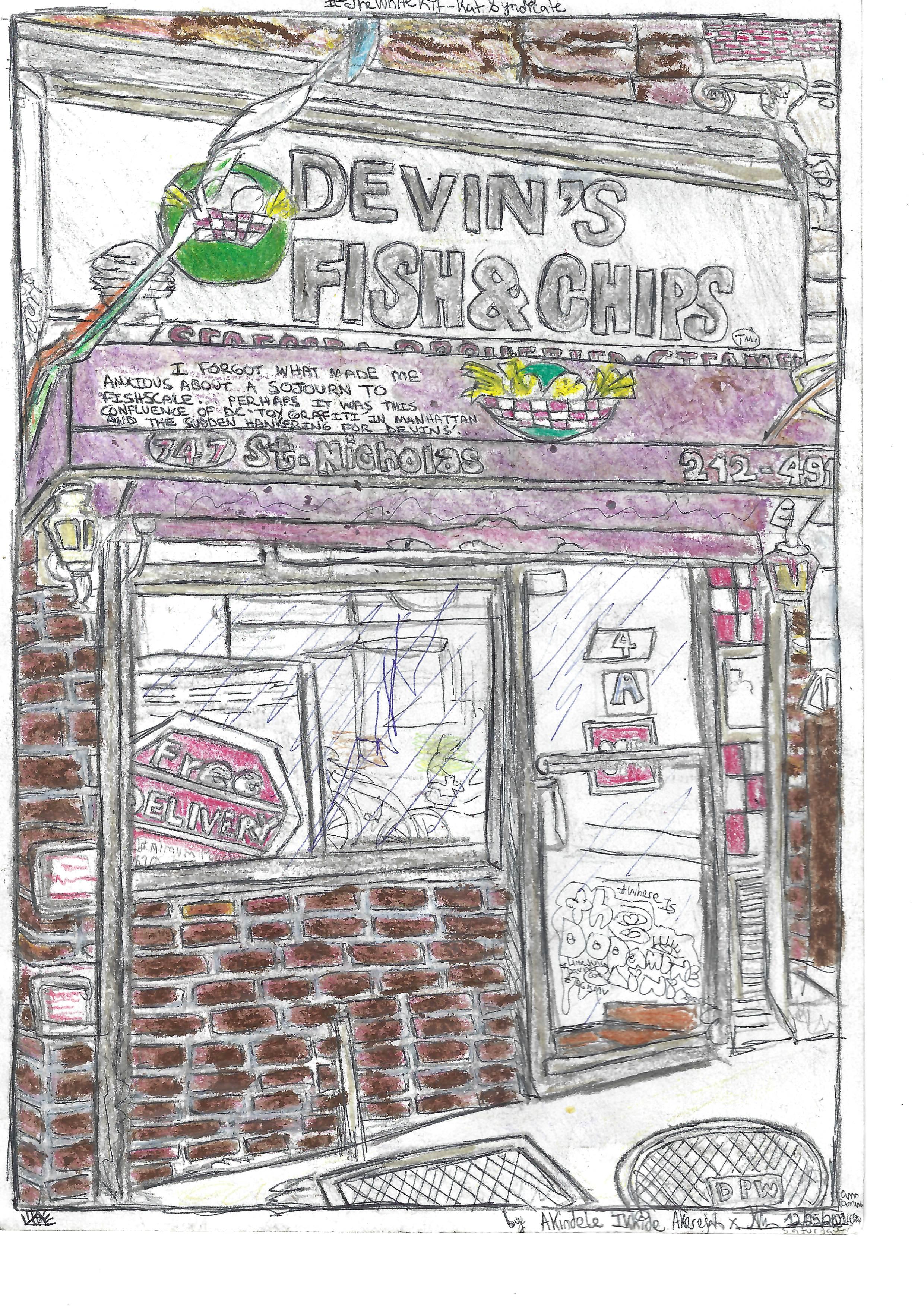


NOV. 9 - 15, 2022 | VOLUME 19 ISSUE 51 From your vendor, Thank you for reading Street Sense! 5,700 VENDORS WWW.INSP.NGO 3.2 million READERS 90+ STREET PAPERS 35 COUNTRIES 25 LANGUAGES NO CASH? NO PROBLEM. WE HAVE AN APP! SEARCH “STREET SENSE” IN THE APP STORE
Artist/Vendor
AKINDELE AKEREJAH






















 CARLTON JOHNSON Artiat/Vendor
CARLTON JOHNSON Artiat/Vendor

 NIKILA SMITH Artist/Vendor
NIKILA SMITH Artist/Vendor












 PHILLIP BLACK Artist/Vendor
PHILLIP BLACK Artist/Vendor







